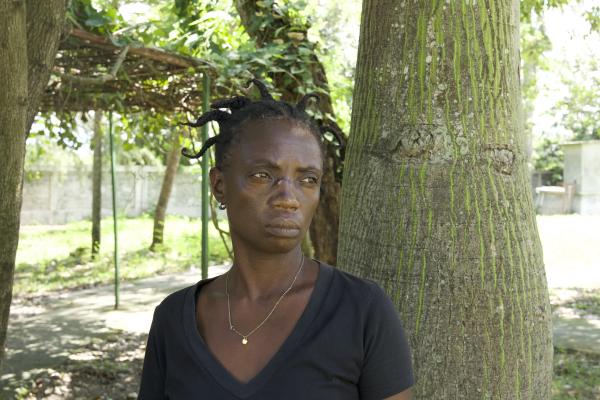When Anise Bénéus talks about her life in Boucan Carré, she describes a reality marked by uncertainty. She is raising six children in a house that threatens to collapse. Income is non-existent and the family lives from hand to mouth. Her husband is unable to contribute, and she alone bears the responsibility of providing the essentials.
Food is the first challenge. Some days go by without a meal. Other times, she manages to prepare something, but this remains rare. The idea of eating twice a day hasn’t existed for a long time. The children are regularly expelled from school for non-payment. Each expulsion adds stress, shame and a sense of powerlessness. She’d like to offer her children something better, but she can’t afford it.
To keep going, Anise borrows small sums from neighbors. It’s her only solution to put a meal on the table. These debts accumulate, and creditors often return to demand repayment, sometimes insistently. The exchanges sometimes become tense, adding further pressure to an already difficult daily routine.
Anise nevertheless tries to get by. She accepts every job opportunity. If someone needs help in a field or with a manual task, she goes. She takes whatever work is available to pay off what she owes and buy some food.
It was through the local authorities that she learned of a project funded by FAES. She is told that registrations are open for families in need of immediate support. She hesitated, used to coping alone. But the Zanmi Lasante team in Boucan Carré, familiar with living conditions in the area, confirms that her situation is a priority.
The support she receives is part of a social package set up to accompany follow-up visits to health facilities. Twice during the project, she receives a $25 cash transfer, in addition to a food kit offered during the same visits. The kits are prepared on the basis of a list defined by the central nutrition team to ensure a minimum of balanced nutrition despite the limited budget. They contain essentials such as rice, peas, corn, vegetable oil, spaghetti, canned salmon, milk, iodized salt, sugar and vinegar.
For Anise’s family, the kit covers only a few days, but it represents an immediate difference. For a short while, she can feed her children without borrowing. She avoids certain debt-related confrontations. This respite, however brief, lightens her daily routine and allows her to regain some stability.
When asked what this help represents, Anise answers simply. She says only: “To help me with life.” She’s not looking for big phrases. For her, this support means a little less debt, a little less anguish, and the certainty of providing a meal for her children. And that’s enough to keep her going.
Situations like Anise’s are common in rural areas where food insecurity weakens thousands of families. At Zanmi Lasante, the teams are doing everything they can to ensure that these households can access basic services and maintain a modicum of stability. Contribute to this essential work by making a donation here.
